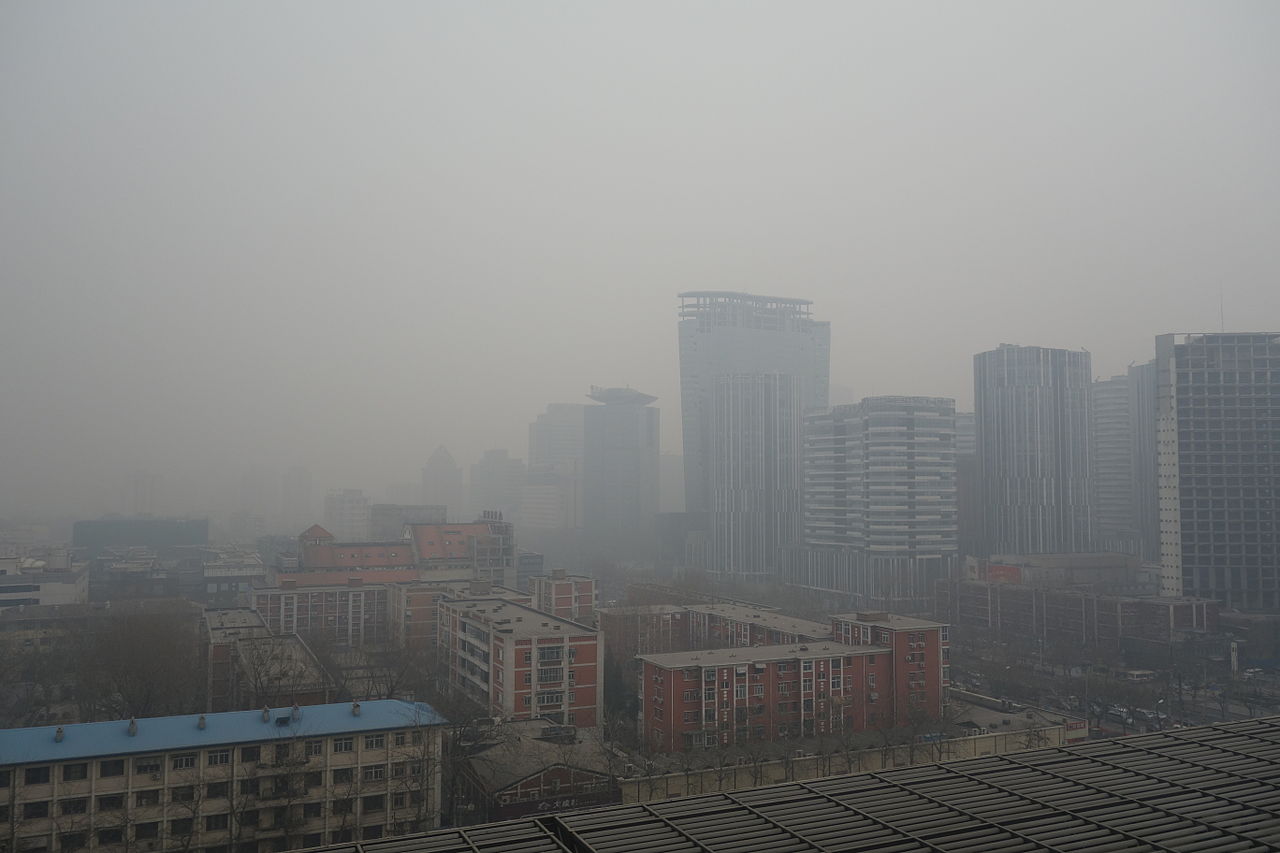The majority of the world’s scientific minds are made up when it comes to climate change. Not only is it real, it’s the single greatest threat that humanity is facing. While large-scale solutions to the problem have yet to be devised, scientists have created a tiny machine that could hold the answer. This device basically absorbs polluted air and turns it into hydrogen, which can be used as fuel.
At this point, it’s no secret that pollution is a major contributing factor to climate change due to the greenhouse gasses that make up the bulk of its mass. Thanks to a device that can convert air pollution into usable fuel, however, humanity might actually get some use out of this terrible environmental hazard, Futurism reports.
The device is the creation of Belgian researchers from the University of Antwerp and University of Leuven (KU Leuven). It’s basically a two-chambered cell with photoelectrochemical properties. According to the paper published by the researchers, air pollutants are absorbed into one chamber, broken down, and then recovered in the form of hydrogen energy.
“Simultaneously, energy is recovered as hydrogen gas at a dark Pt cathode,” the paper reads. “Air remediation is coupled to energy recuperation in a stand-alone device. The presence of oxygen in the carrier gas promotes the mineralization efficiency with only limited loss in photocurrent.”
One of the researchers behind the device also explained to Interesting Engineering how the device works. Bioengineering professor at University at Antwerp, Sammy Verbruggen notes how useful this discovery can be.
“We use a small device with two rooms separated by a membrane,” Verbruggen said. “Air is purified on one side, while on the other side hydrogen gas is produced from a part of the degradation products. This hydrogen gas can be stored and used later as fuel, as is already being done in some hydrogen buses, for example.”



 Jensen Huang Urges Taiwan Suppliers to Boost AI Chip Production Amid Surging Demand
Jensen Huang Urges Taiwan Suppliers to Boost AI Chip Production Amid Surging Demand  SpaceX Reports $8 Billion Profit as IPO Plans and Starlink Growth Fuel Valuation Buzz
SpaceX Reports $8 Billion Profit as IPO Plans and Starlink Growth Fuel Valuation Buzz  Global PC Makers Eye Chinese Memory Chip Suppliers Amid Ongoing Supply Crunch
Global PC Makers Eye Chinese Memory Chip Suppliers Amid Ongoing Supply Crunch  Elon Musk’s Empire: SpaceX, Tesla, and xAI Merger Talks Spark Investor Debate
Elon Musk’s Empire: SpaceX, Tesla, and xAI Merger Talks Spark Investor Debate  Baidu Approves $5 Billion Share Buyback and Plans First-Ever Dividend in 2026
Baidu Approves $5 Billion Share Buyback and Plans First-Ever Dividend in 2026  Alphabet’s Massive AI Spending Surge Signals Confidence in Google’s Growth Engine
Alphabet’s Massive AI Spending Surge Signals Confidence in Google’s Growth Engine  Nvidia Nears $20 Billion OpenAI Investment as AI Funding Race Intensifies
Nvidia Nears $20 Billion OpenAI Investment as AI Funding Race Intensifies  Sam Altman Reaffirms OpenAI’s Long-Term Commitment to NVIDIA Amid Chip Report
Sam Altman Reaffirms OpenAI’s Long-Term Commitment to NVIDIA Amid Chip Report  Nintendo Shares Slide After Earnings Miss Raises Switch 2 Margin Concerns
Nintendo Shares Slide After Earnings Miss Raises Switch 2 Margin Concerns  SoftBank and Intel Partner to Develop Next-Generation Memory Chips for AI Data Centers
SoftBank and Intel Partner to Develop Next-Generation Memory Chips for AI Data Centers  Elon Musk’s SpaceX Acquires xAI in Historic Deal Uniting Space and Artificial Intelligence
Elon Musk’s SpaceX Acquires xAI in Historic Deal Uniting Space and Artificial Intelligence  Anthropic Eyes $350 Billion Valuation as AI Funding and Share Sale Accelerate
Anthropic Eyes $350 Billion Valuation as AI Funding and Share Sale Accelerate  Nvidia CEO Jensen Huang Says AI Investment Boom Is Just Beginning as NVDA Shares Surge
Nvidia CEO Jensen Huang Says AI Investment Boom Is Just Beginning as NVDA Shares Surge  Nvidia Confirms Major OpenAI Investment Amid AI Funding Race
Nvidia Confirms Major OpenAI Investment Amid AI Funding Race  Palantir Stock Jumps After Strong Q4 Earnings Beat and Upbeat 2026 Revenue Forecast
Palantir Stock Jumps After Strong Q4 Earnings Beat and Upbeat 2026 Revenue Forecast 































